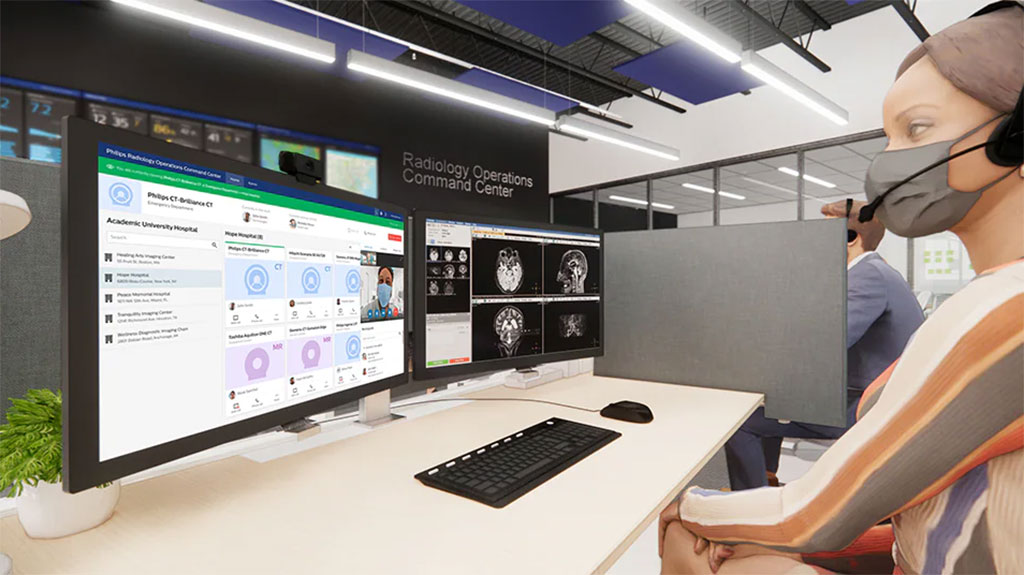Philips Launches Multimodality Imaging Command Center
By MedImaging International staff writers
Posted on 06 Jul 2021
Royal Philips (Philips; Amsterdam, The Netherlands) introduces a new radiology operations command center (ROCC), a virtual imaging platform that enables real-time, remote collaboration between technologists, radiologists, and image operations teams across multiple sites via private, secure telepresence capabilities. The proprietary digital technology is intended to maintain business continuity, increase enterprise-wide radiology productivity, minimize issues with image quality, and expand access to advanced MR- and CT-based diagnosis. Posted on 06 Jul 2021
The vendor-neutral digital hub connects imaging experts at a ROCC with technologists and onsite staff across an entire enterprise for real-time, over-the-shoulder collaboration, by providing remote access to scanners across the network. The remote scanner connections are compatible with older imaging platforms, allowing customers to operationalize a ‘Hub and Spoke’ model for imaging within their current install base. ROCC enables multiple use cases such as virtual imaging assistance, on-demand cross-training, and remote adjustment of imaging protocols for greater standardization.

Image: The Philips radiology operations command center (ROCC) (Photo courtesy of Philips)
“We understand the pain points our customers face in terms of staff variability, training levels, and the need to maintain standardization of both the imaging quality and the patient experience - pain points that have been further accentuated by the COVID-19 pandemic,” said Kees Wesdorp, chief business leader of precision diagnosis at Philips. “Philips ROCC enables our customers to virtualize imaging by setting up a unique model of operations to seamlessly extend their expert talent across all sites.”
“We have been deeply involved in piloting Philips’ ROCC on our scanners over the past year, which is already showing great potential to help enhance our workflow efficiency and training needs,” said Lawrence Tannenbaum MD, VP and Chief Technology Officer at RadNet. “We use the technology to distribute our expertise across our network. Examples include cardiac imagers at one site helping to manage workload at other sites, while a rookie technologist doing a problematic prostate MR can get support from expert technologists at a central site. The information sharing is already showing great potential.”
As radiology networks expand their services, they continue to experience technologist shortages, skill limitations, image quality issues, and scheduling challenges, all of which impact patient care. Variability in imaging technologist expertise and procedure quality can lead to the need for repeat scans and recalls, resulting in additional procedure and training costs. Imaging procedure training, which traditionally requires in-person onsite training, is often difficult during the current COVID-19 pandemic.














